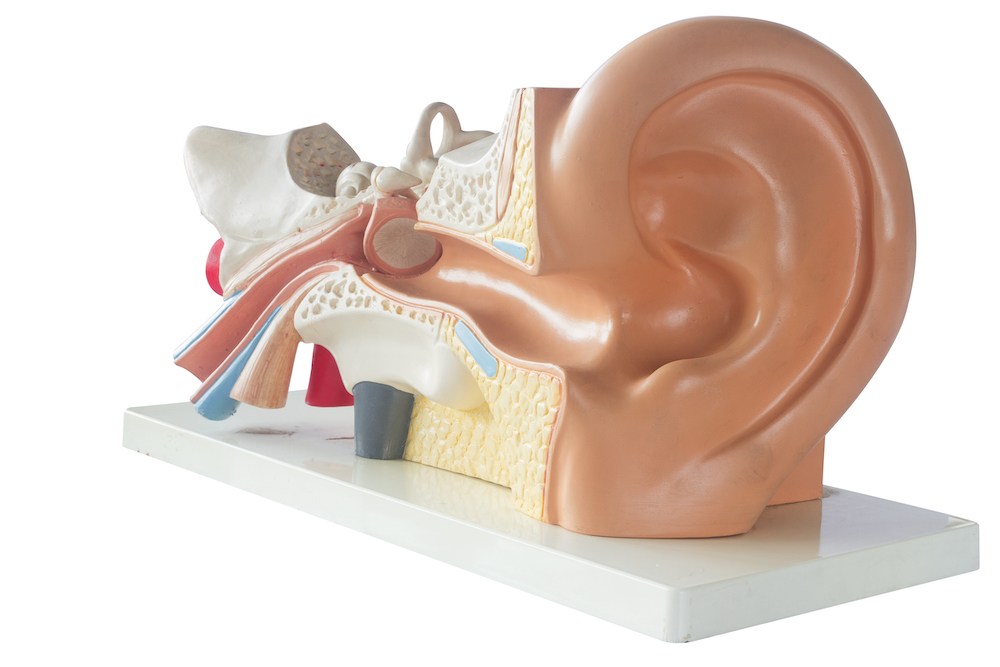The Role of Hearing Care Professionals in Rehabilitation
When hearing difficulties start affecting your conversations at work,

By: admin | January 31, 2024
Tinnitus can feel like a relentless opponent. The annoying ringing or buzzing in your ears can disrupt your daily routine and even affect your sleep. This issue is a common one, and many people are seeking ways to find relief. While there’s no definitive cure for tinnitus, there are various coping mechanisms that can help manage the problem and enhance your quality of life. Understanding these strategies is essential for anyone dealing with this issue, as they offer potential ways to lessen its impact on everyday activities. With the right approach and knowledge, managing tinnitus becomes a more achievable task.
To manage tinnitus effectively, it’s important to understand how it influences your everyday life. This understanding equips you with the necessary tools to better cope with the constant ringing or buzzing in your ears, which often disrupts daily activities and sleep patterns.
Tinnitus can significantly impact various aspects of your life, including:
Tinnitus has different variations that can be altered based on how you developed it, other medical conditions you are dealing with and symptoms you are experiencing. The four main types of tinnitus include:
While tinnitus can feel invasive to nearly every aspect of your life – from disrupting your sleep schedule to making it difficult to focus in meetings – there are numerous options for helping alleviate the frustrating symptoms. Treatments like hearing aids, sound machines and tinnitus retraining therapy (TRT) are all great methods for addressing the ringing or buzzing long-term, there are other modifications you can make to your everyday life that can also lessen the symptoms.
What you eat and drink can play a significant role in managing the symptoms of tinnitus. Certain foods and beverages have been linked to a reduction in tinnitus symptoms. For instance, foods rich in zinc like oysters, beef and pumpkin seeds may help alleviate the ringing or buzzing sounds. On the other hand, some elements like caffeine and salt might exacerbate these symptoms. While dietary changes can aid in managing tinnitus symptoms, they are not a definitive cure. The effects vary from person to person and should be considered as part of a comprehensive approach to managing tinnitus.
Regular physical activity can help manage tinnitus. Exercise increases blood flow to the ears and brain, which may help lessen the ringing or buzzing sounds you hear. In addition to improving overall health, exercise can also aid in stress management. Regular physical activity releases endorphins – our body’s natural stress relievers – which can help diminish the prominence of tinnitus in your daily life. So, while exercise may not cure tinnitus, it certainly offers potential benefits in managing this persistent issue.
Tinnitus can often become more noticeable during stressful periods. Stress doesn’t cause tinnitus, but it can exacerbate the issue, making the ringing or buzzing sounds more prominent and disruptive.
Fortunately, there are several stress management techniques that can help ease tinnitus. Relaxation exercises like deep breathing or meditation can help calm your mind and reduce stress levels. Similarly, mindfulness practices encourage you to focus on the present moment rather than worrying about the ringing or buzzing in your ears. Regular physical activity is another effective way to manage stress and potentially lessen the severity of tinnitus. While these techniques may not eliminate tinnitus, they can certainly make it more manageable and improve your overall quality of life.
Tinnitus can significantly affect your sleep. The persistent ringing or buzzing in your ears can make falling asleep difficult, and may even cause you to wake up throughout the night. However, there are strategies that can help improve your sleep quality. One effective method is using sound therapy. This involves playing soothing sounds like white noise or nature sounds to help mask the ringing or buzzing in your ears. Additionally, maintaining a regular sleep schedule and creating a relaxing bedtime routine can also contribute to better rest. Physical activity during the day has been shown to promote better sleep at night as well. While these tips may not completely eliminate the impact of tinnitus on your sleep, they can certainly make it more manageable and improve your overall quality of life.
Hearing aids are not just for improving hearing loss. They can also play a significant part in managing tinnitus. Hearing aids can be equipped with masking features that help override the tinnitus sounds you are trying to ignore. This is a seamless transition in your day-to-day life and allows you to shift your focus away from tinnitus symptoms.
However, finding the right hearing aid can be a task. It’s important to work with a professional who can guide you through this process and help you find a device that suits your specific needs and lifestyle. While hearing aids may not eliminate tinnitus completely, they can certainly make it more manageable and improve your overall quality of life.
While tinnitus currently lacks a cure, various strategies aim to alleviate symptoms and minimize its impact. Sound therapy is a widely recommended approach that utilizes external noise to modify the perception or reaction to tinnitus. The masking approach exposes individuals to background noise, like white noise, nature sounds or ambient sounds, to either mask the tinnitus noise or divert attention away from it. Listening to sound machines, music through headphones or utilizing household items like electric fans, radios or TVs can provide temporary relief from the persistent perception of tinnitus.
Sound therapy proves beneficial for a broad spectrum of individuals grappling with bothersome tinnitus, encompassing those experiencing reactive tinnitus triggered by external noise. The suitability for sound therapy extends to people dealing with various auditory and medical conditions contributing to tinnitus, such as Meniere’s disease, middle ear obstructions, head and neck trauma, temporomandibular joint disorder (TMJ), sinus-related issues, autoimmune disorders and numerous other causes. Whether the source is hearing loss or a myriad of other conditions, sound therapy emerges as a versatile intervention that can effectively alleviate the impact of tinnitus for those seeking relief.
TRT stands as a highly recommended and effective treatment for chronic tinnitus, offering a comprehensive approach to managing its impact. Rooted in tinnitus counseling, TRT educates individuals about their condition and employs retraining techniques and sound enrichment to modify reactions and perceptions of the tinnitus sound. Initiated with regular counseling sessions, TRT guides patients through a process of understanding the nature of tinnitus and how altering one’s perception can diminish its impact over time. The program incorporates sound therapy to mask tinnitus, emphasizing the avoidance of silence for successful TRT.
Audiologists play a pivotal role in guiding patients through selecting background sounds that effectively mask tinnitus without causing annoyance. As part of TRT, retraining exercises are introduced gradually, aiming to reduce reactions, lower awareness and ultimately eliminate the annoyance associated with tinnitus. With a personalized counseling schedule and expert guidance, TRT offers both short-term and long-term relief for those grappling with chronic tinnitus.
Adopting healthier lifestyle choices can play a significant role in managing tinnitus. For instance, reducing intake of caffeine and salt, which are known to exacerbate tinnitus symptoms, can be beneficial. Similarly, incorporating relaxation exercises into your routine can help alleviate stress, a common trigger for tinnitus. These modifications may not eliminate the problem completely but they can certainly make it more manageable and improve your overall quality of life.
While understanding tinnitus and its various coping mechanisms is an essential step, you don’t have to face this issue alone. Seeking professional help can provide you with personalized strategies and solutions tailored to your specific needs.
At The Hearing Clinic at Woodlake in Richfield, MN, our team of dedicated professionals are ready to assist you on your journey towards better hearing health. We understand the challenges posed by tinnitus and are committed to helping you manage this issue effectively.
For more information or to schedule an appointment, please call us at (612) 200-8403. Let’s work together towards improving your quality of life by managing tinnitus in a way that best suits your lifestyle.
Tags: tinnitus basics, tinnitus symptoms, tinnitus treatment

When hearing difficulties start affecting your conversations at work,
By: admin | June 20, 2025

At the start of a new year, many people focus on their health by
By: admin | February 18, 2025

Ever been in the middle of a conversation when suddenly your hearing aid
By: admin | October 30, 2024
